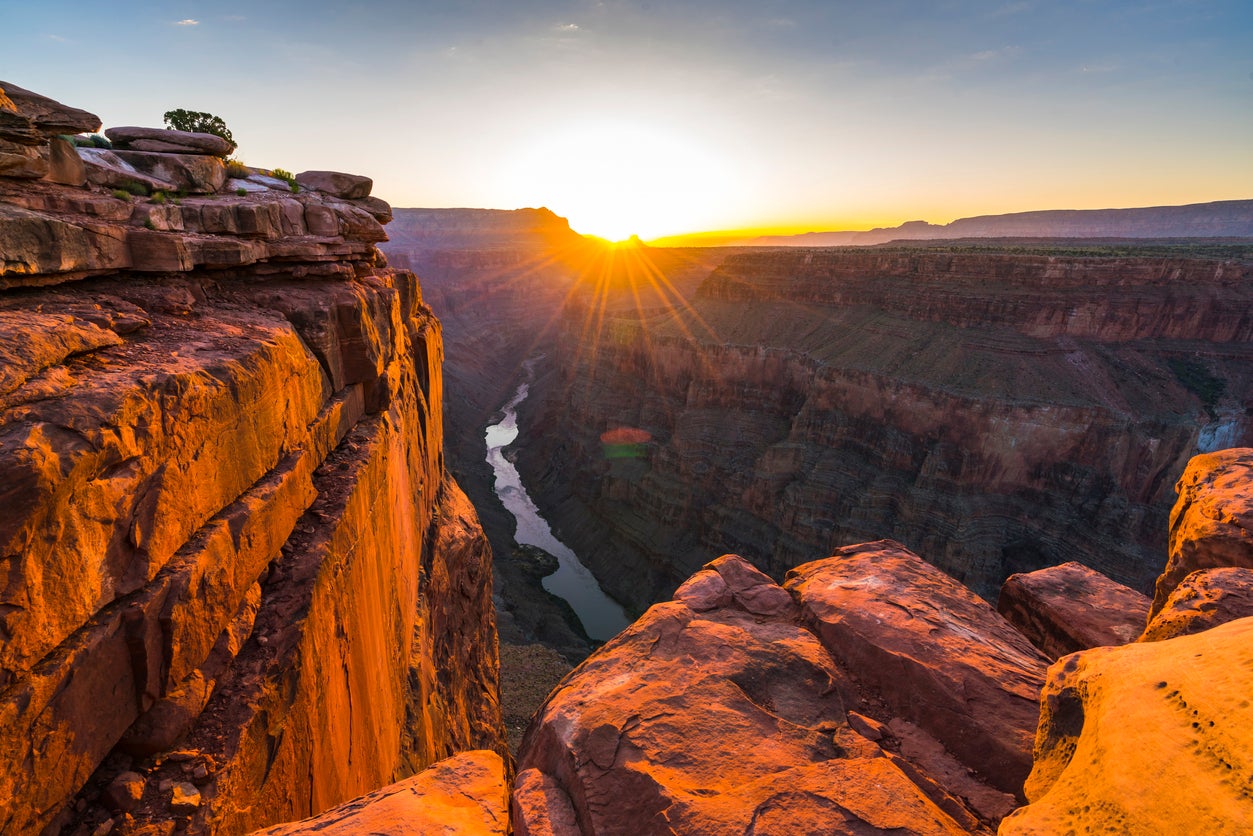‘Long overdue’ Grand Canyon renames offensive beauty spot
The location will now be called ‘Havasupai Gardens’

The US National Parks Service announced it would change the name of a popular Grand Canyon viewing area because it was deemed "offensive" to the Havasupai Native American Tribe.
Grand Canyon superintendent Ed Keable said the name change was "long overdue" in a statement on Monday that explained the switch.
According to the release, the name change was undertaken as a "measure of respect for the undue hardship imposed by the park on the Havasupai people," Mr Keable said.
The Havasupai were forcibly removed from the region, and have described the name of a popular attraction — "Indian Garden" — as offensive. The tribe petitioned the US Board of Geographic Names to change the site’s name, and in early November the board voted unanimously to grant the request.
The area will now be called "Havasupai Gardens," according to the NPS.
Havasupai chairman Thomas Siyuja, Sr, said that the old name "has had detrimental and lasting impacts on the Havasupai families that lived there and their descendants."
"Every year, approximately 100,000 people visit the area while hiking the Bright Angel Trail, largely unaware of this history," he said. "The renaming of this sacred place to Havasupai Gardens will finally right that wrong."
The rename comes at a time when the US Department of the Interior is focused on changing offensive location names found on federally-managed land.
One of the most substantial efforts the department is undertaking focuses on changing more than 600 location names that contain the word "squaw," an offensive term for a Native American woman.
The effort is being led by US Secretary of the Interior Deb Haaland, who is the first Native American to serve as a cabinet secretary.
Mountains, rivers, lakes, islands and more all carry the slur in their names, and will be renamed over the course of Ms Haaland’s tenure in the position.
Join our commenting forum
Join thought-provoking conversations, follow other Independent readers and see their replies
Comments
Bookmark popover
Removed from bookmarks